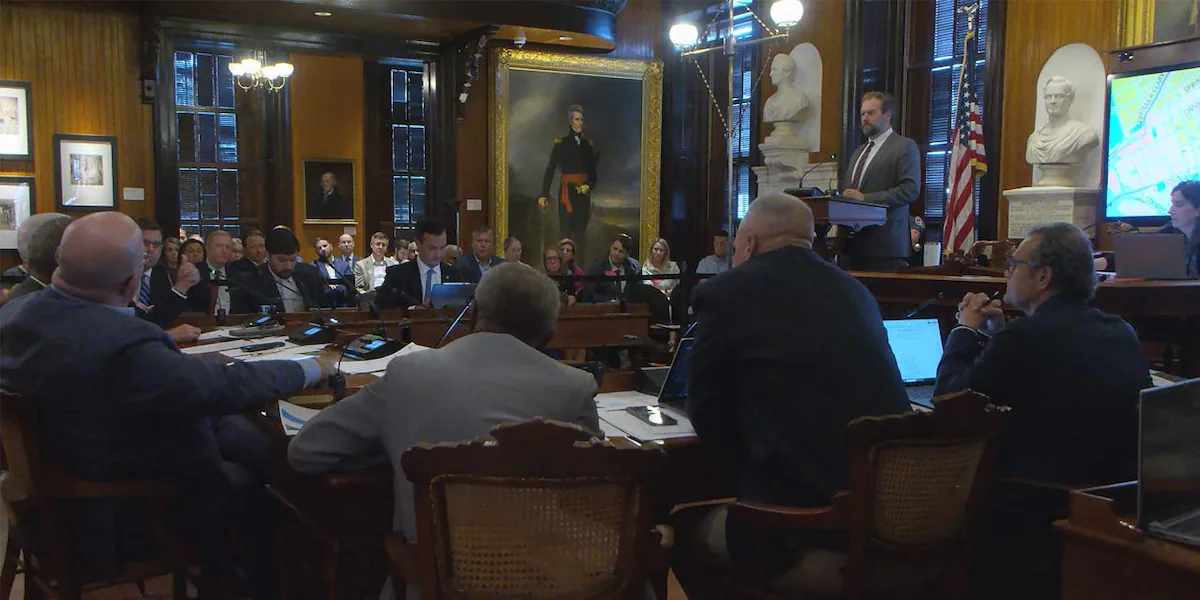
CHARLESTON, S.C. (WCSC) – Amidst community concern, the Charleston City Council approved to move forward with the Medical District overlay zone proposal during the first official reading and public hearing on Tuesday night.
Covering 62 acres, the overlay zone would pave the way for a state-of-the-art cancer center and broader medical campus growth for the Medical University of South Carolina in downtown Charleston. At the meeting, hospital and city officials stressed that for MUSC to stay downtown, they have to grow accordingly.
Under the proposal, restrictions on operating hours would be lifted, housing density limits would be removed, building heights could increase by up to 200 feet, and some parking requirements would be eliminated. The new overlay zone is a part of what they call the “innovation district” that will create a mixed-use area instead of an area solely dedicated to medical facilities. The city says the current zoning ordinance cannot solve campus-wide growth that MUSC needs.
“This community needs what we bring to the table, and that does require an exception,” MUSC President David Cole said. “It’s not like we’re asking for an exception to, you know, build the world’s tallest shopping center. We’re trying to build and bring world-class care to our citizens in a manner where you don’t have to travel, and you know that you’re getting the best care possible in your home community.”
This comes after the first public listening session two weeks ago, where dozens of residents and community organization leaders brought up concerns about the proposal bringing stormwater management issues, lack of historical preservation and increased traffic.
In response, the City of Charleston incorporated updated draft language into the proposal, reaffirmed that standard city building review will apply to the project, and explained its commitment to flood mitigation in the district. They also said the development of the district will solve the downtown flooding issue, which they wouldn’t be able to solve themselves due to a lack of funding and resources. City officials say the new district would help improve stormwater management by 120%.
“Nobody wants storm water improvements more than MUSC,” Charleston Mayor William Cogswell says. “They’ll actually be helping to solve the problem, not make it worse.”
Cole says the approved proposal reflects input from different parts of the community.
“I think where they landed is awesome,” Cole says. “We’re excited about the future. We are committed to this community, and we will bring the level of care that this community deserves.”
Adam Friend is a local resident and spoke during comments and says he believes the city already decided to go forward with the project before any of the public hearings were held.
“I just noticed that we’re getting the red carpet rolled out for MUSC,” Friend says. “I just felt it was important that I share commentary that we don’t notice this as citizens, and I think it’s a dangerous way to approach things in our city if we’re just going to let the people who have the power get whatever they want and the rest of us get to watch it happen.”
There are also still some concerns the community wants addressed, including ongoing neighborhood engagement and transparency on building design and preservation.
The Historic Charleston Foundation has been a public advocate for more details out of the proposal and said they still want there to be improvements on transparency, historic preservation, the height and scale of buildings within the district and community engagement.
The review period of the proposed rezoning effort has been extended until mid-October. The next rounds of review include a second and final reading at an Oct. 14 city council meeting before the final adoption.
“If this was a developer coming in just to make more profit by going higher, we wouldn’t allow that,” Cogswell says. “But because it’s for a world-class cancer facility, we should treat them separately. We should treat them differently.”



